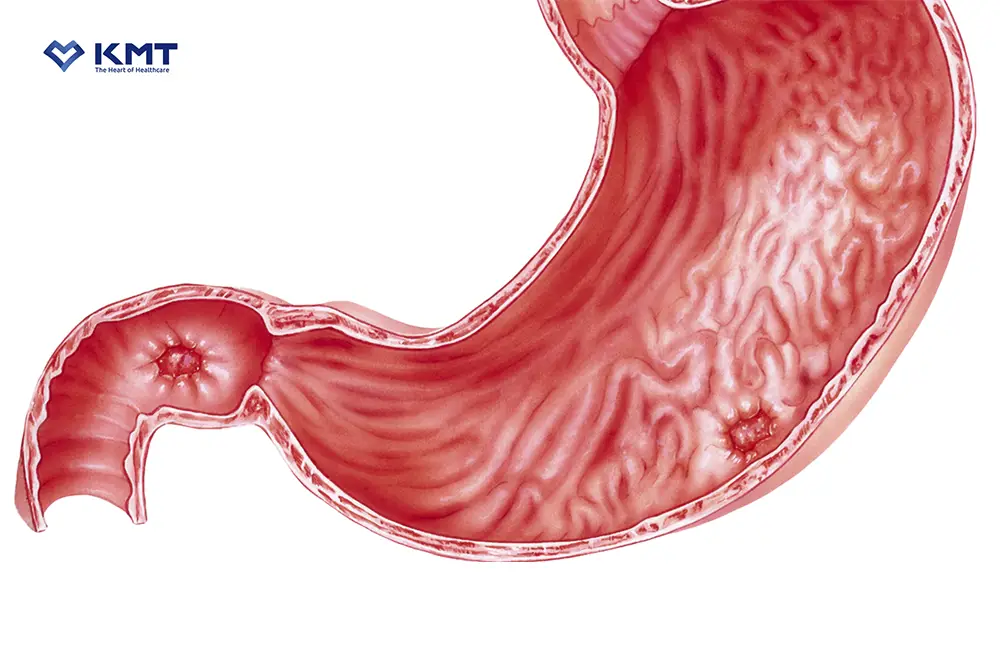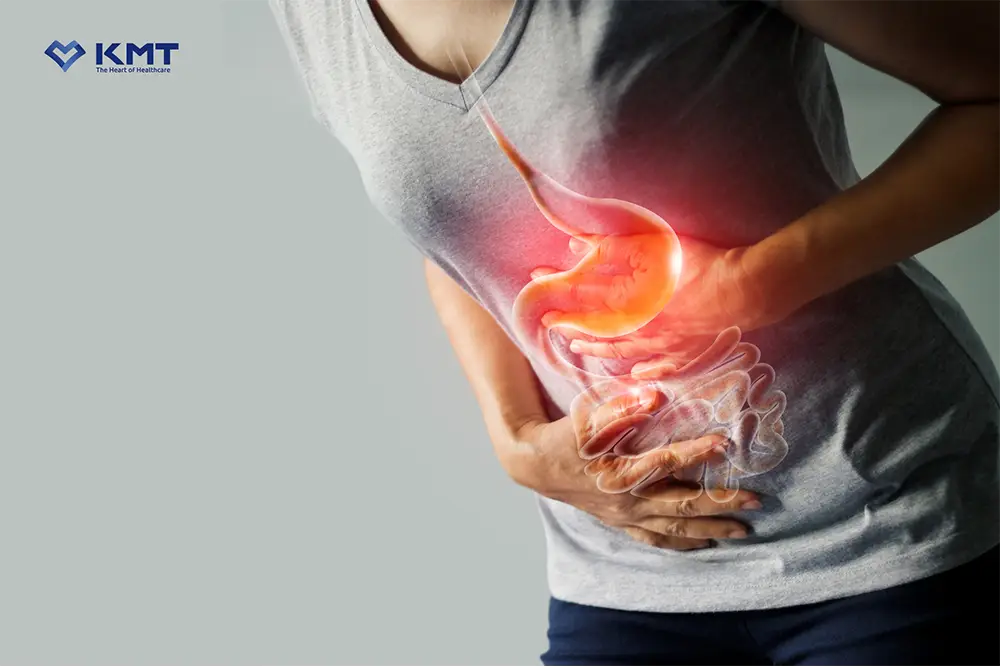A peptic ulcer is an open sore or sores in the layers of the stomach or the initial part of the small intestine. These ulcers can occur in the stomach (gastric ulcer) or in the first part of the small intestine (duodenal ulcer). Gastric ulcers typically develop due to an imbalance between protective factors and damaging factors in the stomach’s lining.

The following factors can contribute to the development of gastric ulcers:
- Infection with Helicobacter pylori bacteria: This bacterium can harm the stomach lining and lead to infection.
- Long-term use of non-steroidal anti-inflammatory drugs (NSAIDs): The prolonged use of medications like aspirin, ibuprofen, and naproxen can weaken the stomach’s protective layer and cause gastric ulcers.
- Stress and psychological pressure: Stress can have a direct or indirect impact on stomach function and lead to the development of gastric ulcers.
- Genetic factors: Some individuals may be at a higher risk of gastric ulcers due to genetic reasons.
- Alcohol and smoking: Excessive alcohol consumption and smoking can increase the risk of developing gastric ulcers.
- Dietary factors: The consumption of spicy, fatty, and unhealthy foods can contribute to the development and aggravation of gastric ulcers.

Symptoms of gastric ulcers can vary and depend on the severity and type of ulcer. Some common symptoms of gastric ulcers include:
- Abdominal pain: Abdominal pain is a primary symptom of gastric ulcers. This pain is usually felt in the upper abdomen or just below the sternum (the upper part of the abdomen). The pain can be sudden and severe or chronic and mild.
- Burning and discomfort: Feeling a burning sensation and discomfort in the abdominal region can also be indicative of a gastric ulcer. These symptoms may worsen after eating or at night and can be relieved by vomiting or consuming spicy foods.
- Nausea and vomiting: Gastric ulcers can lead to nausea and vomiting. Vomiting may include blood or dark stool, which is a sign of bleeding in the ulcer.
- Loss of appetite and weight loss: Gastric ulcers can lead to a decreased appetite and weight loss. This can be due to abdominal pain, early satiety, and nausea.
- Gastrointestinal bleeding: In some cases, gastric ulcers can result in gastrointestinal bleeding, which may manifest as blood in vomit, stool, or rectal bleeding.

Can Stomach Ulcers Be Congenital?
Yes, stomach ulcers can be congenital in some rare cases. This condition, which exists at birth, is referred to as congenital peptic ulcer or prenatally-acquired peptic ulcer. Congenital stomach ulcers can occur due to genetic factors and fetal development disorders during pregnancy. This type of ulcer typically affects infants and children due to gastrointestinal system abnormalities or other congenital issues.
Symptoms of congenital stomach ulcers may include vomiting blood or dark stool, nausea, frequent vomiting, abdominal pain, and restlessness. To accurately diagnose and treat congenital stomach ulcers, it is essential to consult with a gastroenterologist and undergo necessary tests and imaging.
Is Stomach Ulcer Treatable?
Fortunately, stomach ulcers are treatable, and in many cases, they can be cured or significantly improved. However, for a definitive treatment of stomach ulcers, the underlying cause must be determined and appropriately treated.
The treatment of stomach ulcers typically includes the following:
- Acid-suppressing medications: Acid-suppressing drugs like H2 receptor antagonists and proton pump inhibitors (PPIs) help prevent excess acid secretion in the stomach during rest, promoting ulcer healing.
- Antibiotics: If an infection with Helicobacter pylori bacteria is present, antibiotics are used to eradicate the bacteria. Combined treatment with antibiotics and acid-suppressing drugs is an effective approach to treat gastric ulcers.
- Stress management: Stress and psychological pressure can negatively impact gastric ulcers. Stress management techniques such as meditation, breathing exercises, and relaxation methods can accelerate ulcer healing.
- Dietary changes: Consuming a healthy diet and improving dietary habits can be effective in treating gastric ulcers. It is advisable to limit the intake of spicy, fatty, unhealthy foods, and stimulants like coffee and cigarettes.
If you experience any of these symptoms, it is essential to consult a specialist promptly to facilitate a quicker recovery.



